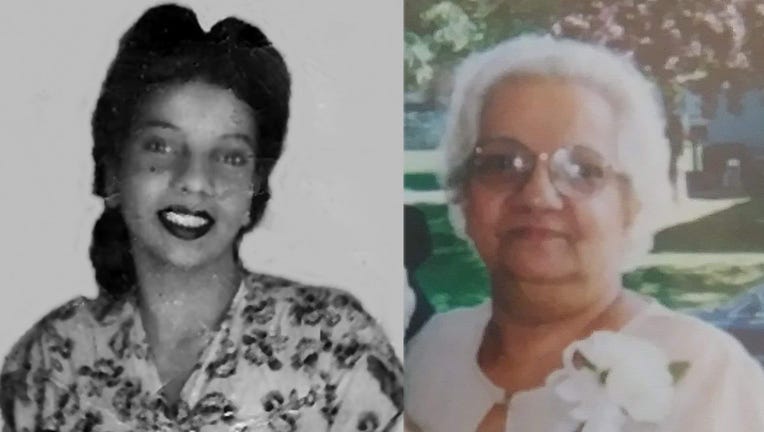Ohio law allowing cameras in nursing home rooms to prevent abuse goes into effect

Esther Piskor, whose abuse inspired the Ohio condition “Esther’s Law,” is pictured in provided spouse and children pictures. (Photos: Furnished / Steve Piskor)
COLUMBUS, Ohio – A state legislation in Ohio making it possible for cameras and other digital monitoring devices to be put in in the rooms of nursing household people went into influence this 7 days — the fruits of a single man’s advocacy for in excess of a 10 years just after his aged mom experienced abuse and neglect at a facility.
Esther’s Law, which went into impact on Wednesday, aims to avert elder abuse. It demands nursing household services to make reasonable lodging for such cameras, and it prohibits them from retaliating in opposition to people who desire to set up them.
It allows nursing homes to put up a sign outside the house the resident’s space that cameras are functioning. It also calls for consent by the resident or their representative prior to a camera can be positioned in their home. If the nursing residence resident has a roommate, the other resident or their consultant should also give authorization.
Esther’s Law was motivated by Esther Piskor, who was in her 70s and living with dementia at a Cleveland-location nursing dwelling and experienced abuse and neglect when at the facility.
What took place to Esther Piskor, who inspired Esther’s Regulation?
Her son, Steve Piskor, frequently visited his mom, who required care from workers for all of her demands due to Alzheimer’s condition. But Piskor reported the employees never ever talked about any concerns with his mother’s treatment. Having said that, he eventually started to suspect there was a thing wrong and put a hidden digital camera in Esther’s home in 2011.
From the digicam, he noticed aides yell at her, spray liquid into her encounter, be rough in her managing and neglect her for prolonged periods, as specific by the Ohio Department of Aging.
A person nursing aide, who was captured on digital camera forcefully transferring Esther from her mattress to a wheelchair, tossing her in a rough method onto the bed and pushing her confront into her mattress when washing her, pleaded responsible to 7 counts of individual abuse in 2011. She was sentenced to 10 decades in prison the next yr and was granted early release in 2019.
Warning: The content of the underneath YouTube online video could be disturbing to some viewers.
https://www.youtube.com/observe?v=JZBgvyPq6B4
The traumatic situations involving his mom prompted Piskor to advocate for a regulation granting family members the legal means to monitor staff members who treatment for their liked types. Immediately after a ten years of advocacy — which bundled many email messages and cell phone phone calls to lawmakers pushing for the legislation — Esther’s Law was handed unanimously by point out lawmakers in each the Ohio Household and Senate. It was signed into law by Governor Mike DeWine on Dec. 22, 2021.
“It’s really not hitting me until finally today,” Piskor said Thursday, a working day immediately after the regulation officially took impact.
Piskor claimed his up coming obstacle will be implementation, “which is the hardest part of the law.” He aims to carry on helping to advocate for family members with beloved ones in nursing households and generating confident amenities are knowledgeable of the new regulation.
What is elder abuse?
Elder abuse, which involves physical abuse, emotional abuse, sexual abuse, exploitation, neglect and abandonment, can be somewhat of a “silent issue” impacting up to 5 million Us citizens every single 12 months, according to figures shared by the Nationwide Council on Growing older.
The U.S.-based mostly group estimates that roughly a person in 10 People age 60 and up have seasoned some form of elder abuse, and suggests the abuse is typically perpetrated by a spouse and children member, this sort of as an grownup little one or partner. One particular analyze believed that only a person in 24 instances of abuse are described to authorities.
U.S. officers released a Medicare website that singles out facilities in which a affected person was harmed due to neglect, exploitation, or was bodily, mentally or sexually abused — exhibiting a buyer alert icon next to nursing residences that have been cited.
These who are socially isolated and have a psychological impairment, these kinds of as dementia or Alzheimer’s disease, are more vulnerable to abuse, the Countrywide Council on Growing old states. Warning signals can incorporate bruises, tension marks, broken bones, abrasions or burns.
Related: Caretaker noticed on digicam abusing 88-yr-outdated gentleman presented probation, house arrest
Other high-profile scenarios where by abuse was captured on video have led to some U.S. states further than Ohio passing rules allowing the installation of cameras in nursing residence residents’ rooms, matter to particular policies. Some states with associated guidelines include Illinois, Kansas, Louisiana, Minnesota, New Mexico, Oklahoma, Texas and Washington condition.
In some states without precise legislation, the permissibility of installing movie cameras has come to be rather of a “lawful gray region,” in accordance to the Arizona-centered law firm Miller, Kory, Rowe LLP.
But the pandemic also prompted renewed desire in this style of laws during intervals of visitation bans in an hard work to protect against the distribute of COVID-19.
A single in five U.S. nursing homes report PPE, team shortages amid COVID-19 surges
The nursing houses that most often noted PPE shortages were being for-gain, aspect of a chain, and experienced COVID-19 instances among inhabitants and workers, according to the Connected Press.
Additional about Esther’s Regulation in Ohio
As portion of Esther’s Law in Ohio, only inhabitants, their reps, law enforcement, or whomever in any other case permitted by the resident can check out or hear to camera recordings. Whilst it can supply incentives to personnel “to provide quality of care and cure with dignity to residents,” it also is not a substitute for very good treatment and relatives involvement, the Department of Getting old claims.
“Nursing property citizens and family members are inspired to carry on their involvement due to the fact a resident can nevertheless be mistreated exterior their area which would not be captured exterior the resident area,” the division states on its site.
If the nursing residence resident’s roommate does not supply consent to a digicam in the room, the facility need to also make “affordable lodging” for the resident by shifting them to one more accessible area.
“I’ve been telling people to just use it, use the law,” Piskor explained of Ohio’s law. “Even if you imagine that your mother is great, it’s not going to harm you to set a digital camera in there.”
This tale was documented from Cincinnati.








